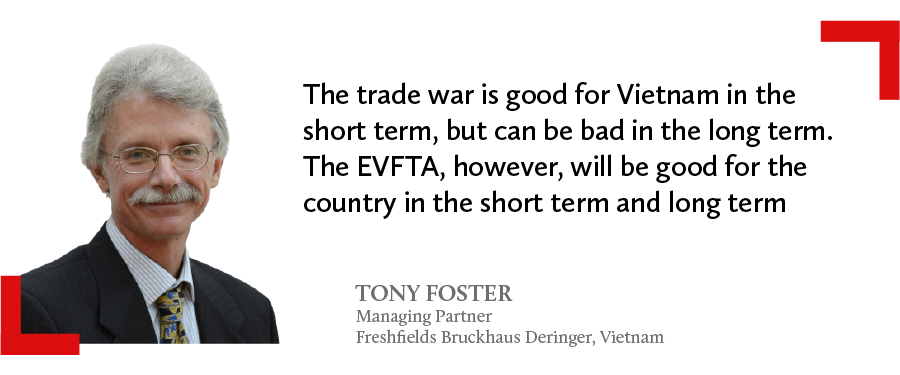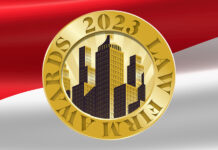A foreign trade war, a collection of new trade alliances and a raft of pending legislation have placed Vietnam in a fortunate position for a major windfall. Can it capitalize? Mithun Varkey reports
Vietnam is an ambitious nation that is slowly but surely turning itself into a major economic hub in the region, and building a place for itself in global trade. The country is buzzing and the economy is upbeat. Many tout Vietnam to be the next China, a global manufacturing powerhouse, especially in light of the US-China trade war, which seems far from reaching détente.
Because of its proven manufacturing expertise and proximity to China, with which it shares a border, Vietnam is expected to be the biggest beneficiary of a protracted trade war. Media reports have suggested that a lot of Chinese manufacturers are considering moving their factories to south of the border.
While acknowledging that Vietnam is among the nations best prepared to benefit from the ongoing US-China trade tussle, market practitioners remain circumspect about a trade war bonanza.
On the other hand, there is palpable excitement about the prospects of the various free trade agreements that Vietnam has been signing. The European Union-Vietnam Free Trade Agreement (EVFTA) in particular is expected to be one of the biggest game changers for the country’s economy.
There is also a lot of expectation around the impact of the Comprehensive and Progressive Agreement for Trans-Pacific Partnership (CPTPP), the new version of the now-defunct Trans-Pacific Partnership, which was called off after President Donald Trump decided to pull the US from the pact after coming to power.
“Given that Vietnam has political and economic stability, an economy that is growing consistently at 5-6% per year and a large population, it is a good alternative manufacturing destination,” says Dang Duong Anh, managing partner at VILAF in Hanoi.
“Some of the manufacturing from China will move to Vietnam, and there has been a small increase in interest in the first eight months of the year,” he says. “However, there are pros and cons to the trade war for Vietnam.”
“The trade war is good for Vietnam in the short term, but can be bad in the long term. The EVFTA, however, will be good for the country in the short term and long term,” says Tony Foster, Managing Partner for Freshfields Bruckhaus Deringer’s Vietnam offices.

You must be a
subscribersubscribersubscribersubscriber
to read this content, please
subscribesubscribesubscribesubscribe
today.
For group subscribers, please click here to access.
Interested in group subscription? Please contact us.
你需要登录去解锁本文内容。欢迎注册账号。如果想阅读月刊所有文章,欢迎成为我们的订阅会员成为我们的订阅会员。



























